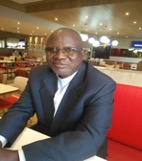It has been maintained for centuries that politics is a dirty game, but this thinking is losing ground and weight. In some quarters, the feeling is that politics, itself, is not dirty, but the political practitioners are the ones who are tarnishing the image and game of this field.
Henceforth, it is quite interesting to note that some followers are currently questioning the legitimacy of political speeches uttered during and after the mobilising meetings and campaigns, and equally demand to know about the hollow promises usually made by their political masters.
The masses nowadays demand their masters to account for whatever they say and promise during their political campaigns, who usually usher them into those majestic positions of authority and glory.
In today’s world of advanced technology, it is even no longer fashionable to make careless speeches as one could end up on social media, and the message goes viral. This scenario may not only embarrass the politician as an individual, but it may as well land the political party in an irredeemable situation, which may cost the political party dearly by losing support and the much sought-after votes.
But some Namibian lawmakers seem to be immune to careless speeches, and seem to embrace the laissez-faire talk. Whereas it is totally unacceptable in a democracy to assume to cling to power until the Lord comes back, after such blasphemous utterances, it is business as usual.
Lawmakers who utter such speeches should be taken to task by the people and churches, as we know that such statements are not true. In countries that take their religious beliefs seriously, the church would have vehemently protested and asked the lawmaker to apologise and retract the statement.
There is no political party in a democracy that has permanently held to power without being ousted at a particular time. Why then should people act passively when such lies are being promulgated in broad daylight? There have been similar insinuations in countries that failed to pass the test of permanency.
It was “wamuyayaya” (forever and ever) in Zambia; “Kuku Ngbendu Wa Za Banga”, loosely translated as “The all-powerful warrior who, because of his endurance and inflexible will to win, will go from conquest to conquest, leaving fire in his wake” in the former Zaire, renamed the Democratic Republic of the Congo; “life president” in Malawi and “ruling from the grave” in Zimbabwe”.
But all those titles are gone forever and forgotten, and their holders are six feet deep under the ground.
It is quite strange that even the political leaders addressed by such titles accept them as normal when they know that the truth of parting from this world is inevitable – no matter how tight their security is.
The worst thing is when the recipients of such praises fail to deliver on their promises to the electorate. This becomes another method of exploiting the innocent masses, who were supposed to benefit from the largess that falls from the master’s table. In most cases, the politicians play games on the masses – most of them being semi-literate.
But in some cases, the masses usually know they are being deceived by politicians – and these fraudsters lose the next election.
In fact, the crumbles that fall from the tables of the politicians are stolen from the national cake, which should be divided equally. But through dubious means, the politicians usually get the lion’s share of the national cake, which should be rightfully and equally shared with the masses – implications of such behaviour in the master-slave relationship has been internalised in many minds and deeply affected Africans, who have been into slavery for many centuries.
This type of style makes people feel dependent on one person, and therefore rarely develop critical and innovative opinions of their own. This state of affairs inhibits individuals to come up with ideas that assist them in terms of self-reliance. It equally kills the spirit of divergent ideas, as people are forbidden to think independently, but always told to toe the line of the leader or politician. But what some political leaders fail to acknowledge is that people cannot think alike, as they were created differently in the image of the Creator.
Yes, everyone wants to be praised, but others want to be glorified – even for wrong things. But both political leaders and the masses are not robots or zombies who move when remote-controlled, but they have the capacity to think creatively and critically.
In this vein, people, especially our African political and traditional leaders, should look back and see how things have developed all these centuries.
The minds of people have been revolutionised and reached an advanced developed stage by even landing on the moon and other planets, yet our systems are still living in the first centuries of development.
There is nothing wrong in encouraging people to think independently and allowing them to adopt a spirit of constructive criticism.
It was critical thinking and innovative minds that propelled many thinkers to come up with inventions the world enjoys today.
Therefore, if African leaders indeed want development, let them listen to reason, and their conscience should indeed direct them in making the right decisions, even if advice comes from their adversaries.
For any country to develop, it needs citizens who are innovative and critical, constructive thinkers.



